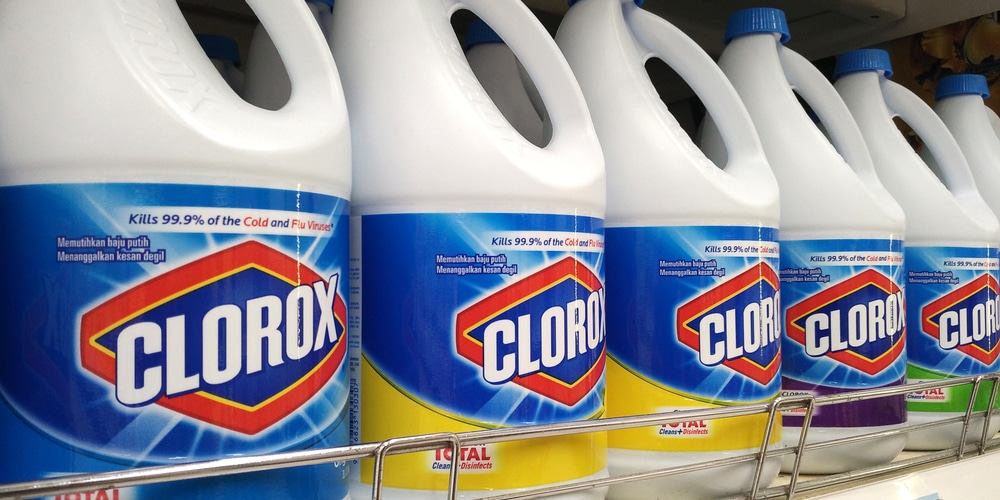You may have heard of people using bleach to kill weeds? Or perhaps you use bleach for cleaning purposes and want to throw the water you’re your yard once you’ve finished.
Dumping bleach or water that contains bleach outside after use may not be the best idea. Be careful where you dispose of bleach as it can kill plants, as well as beneficial organisms in the soil.
If you need to use bleach for outdoor cleaning projects, such as to clean paving stones, gutters, or roof tiles, you’ll need to hose down the area and provide any grass or plants that may have come into contact with the bleach with plenty of water. This will wash the bleach deep into the soil, which will be less likely to affect the plants.
Be wary of using bleach outdoors or disposing of bleach in your yard, as bleach causes plants to suffer from chlorine toxicity, which in high levels can be fatal. This article will answer the question, ‘will bleach kill plants?’ We’ll also tell you how to use bleach to kill weeds.
Which type of bleach kills plants?

There are two types of bleach that are commonly used in homes across America. Chlorine bleach, which is known as sodium hypochlorite, and oxygenated or oxy bleach, which is sodium percarbonate.
Chlorine bleach is caustic and is very damaging to both plants and soil. In a neat form, it will kill plants, but even watered down, it can cause irreversible damage to plants, shrubs, and trees. Oxygenated bleach, on the other hand, isn’t caustic and doesn’t harm plants.
How does chlorine bleach affect plants?
Chlorine bleach affects plants by overloading the plant with salts due to its high sodium content. If enough bleach is poured on the plant and soaks into the soil, a condition called chlorine toxicity can develop. This will raise the pH level of the earth, as bleach has a pH level of 11. Soil with a high pH is likely to be nutrient deficient as the uptake of calcium, iron, and magnesium will be reduced. This means that the plants will be unable to grow well.
Even chlorine pool water can damage grass.
When plants are growing in salt-clogged soil and aren’t getting enough nutrition, their leaves will start to turn brown, and they’ll appear scorched. Most plants that have been affected by bleach will also drop their leaves. When bleach has been poured on the soil and the pH range has increased, this will affect the ground for years to come. You may find that you’re unable to grow plants in the affected soil and will need to test and make changes to the soil to improve its pH level before you can use the affected area again.
Can I use bleach to kill weeds?
Some gardeners use chlorine bleach to create an effective weed killer. While this is effective, it’s important to note that it can damage the quality of the soil, so you should only use bleach as a last resort or in areas, such as between paving stones where you don’t want plants to grow in the future. If you use bleach to kill weeds on your lawn, you’ll also affect the grass and end up with a patchy lawn.
To make a bleach weed killer, mix 2 tbsp. of bleach with one cup of water. The solution can be sprayed onto weeds using a spray bottle. Ensure you cover the weed entirely and rinse any plants that have been sprayed accidentlly with lots of cold water. You could also try using apple cider vinegar.
Conclusion
Many gardeners use bleach to get rid of weeds in paving stones or in their yard, while others completely avoid it as bleach can affect the pH of the soil. Avoid putting too much bleach on your plants as this can affect the ground for years to come as it changes the pH and stops plants from absorbing the nutrients they require.
You may also enjoy: Does dish soap kill grass?
